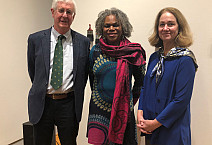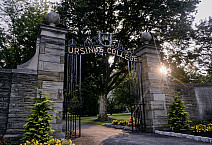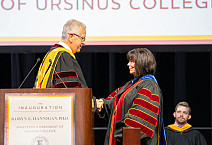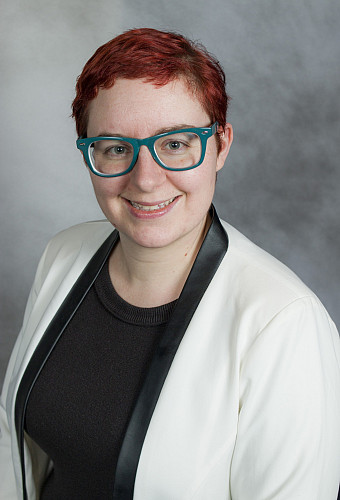Kara McShane
Kara McShane was first drawn to medieval literature as an undergraduate because it seemed foreign and unfamiliar, but she quickly discovered that medieval writers cared about the same questions we do. Her courses often focus on how medieval authors understood difference – race, class, gender, ability, religion, language – and challenge students to consider how medieval notions of the world have shaped our own. By reading some of the best-known authors of the Middle Ages, such as Geoffrey Chaucer and John Gower, alongside medieval travel narratives, performance texts, and anonymous poetry, students in her courses examine (and re-examine) why medieval literature fascinates us and how it is still with us.
McShane’s teaching and research on the popular culture of medieval England has led to an interest in contemporary imaginings of the Middle Ages in literature and film.
Department
Degrees
- B.A., College of Holy Cross
- M.A., Ph.D., University of Rochester
Teaching
Medieval Romance
Structure of the English Language
Postcolonial Middle Ages
Medieval Women
Poetry of Protest in Late Medieval England
CIE
Bears Make History: Digital Entrepreneurship in the Archive and Online
Research Interests
Middle English literature
Medievalism
Digital Pedagogy
Multilingualism, Translation, and Postcolonial theory
Travel Writing
Recent Work
The Destruction of Jerusalem. Ed. with Mark J. B. Wright. Kalamazoo, MI: Medieval Institute Publications, 2021.
“Decoding the Dead: Funerary Inscriptions in St. Erkenwald and The Book of John Mandeville.” In Negotiating Boundaries in Medieval Literature and Culture: Essays in Honor of Thomas Hahn, Ed. Valerie B. Johnson and Kara L. McShane.
“Christian Imperialism and Antisemitic Violence in Titus and Vespasian.” Viator 51.1 (2021).
“Gower as Data: Exploring the Application of Machine Learning to Gower’s Middle English Corpus.” With Alvin Grissom II. Accessus: A Journal of Premodern Literature and New Media.
“Deciphering Identity in The Book of John Mandeville’s Alphabets.” Philological Quarterly 97.1 (Winter 2018).
“Cosmopolitan Anxieties and National Identities in the Netflix Marco Polo.” Studies in Medievalism 26 (2016): 177-194.
